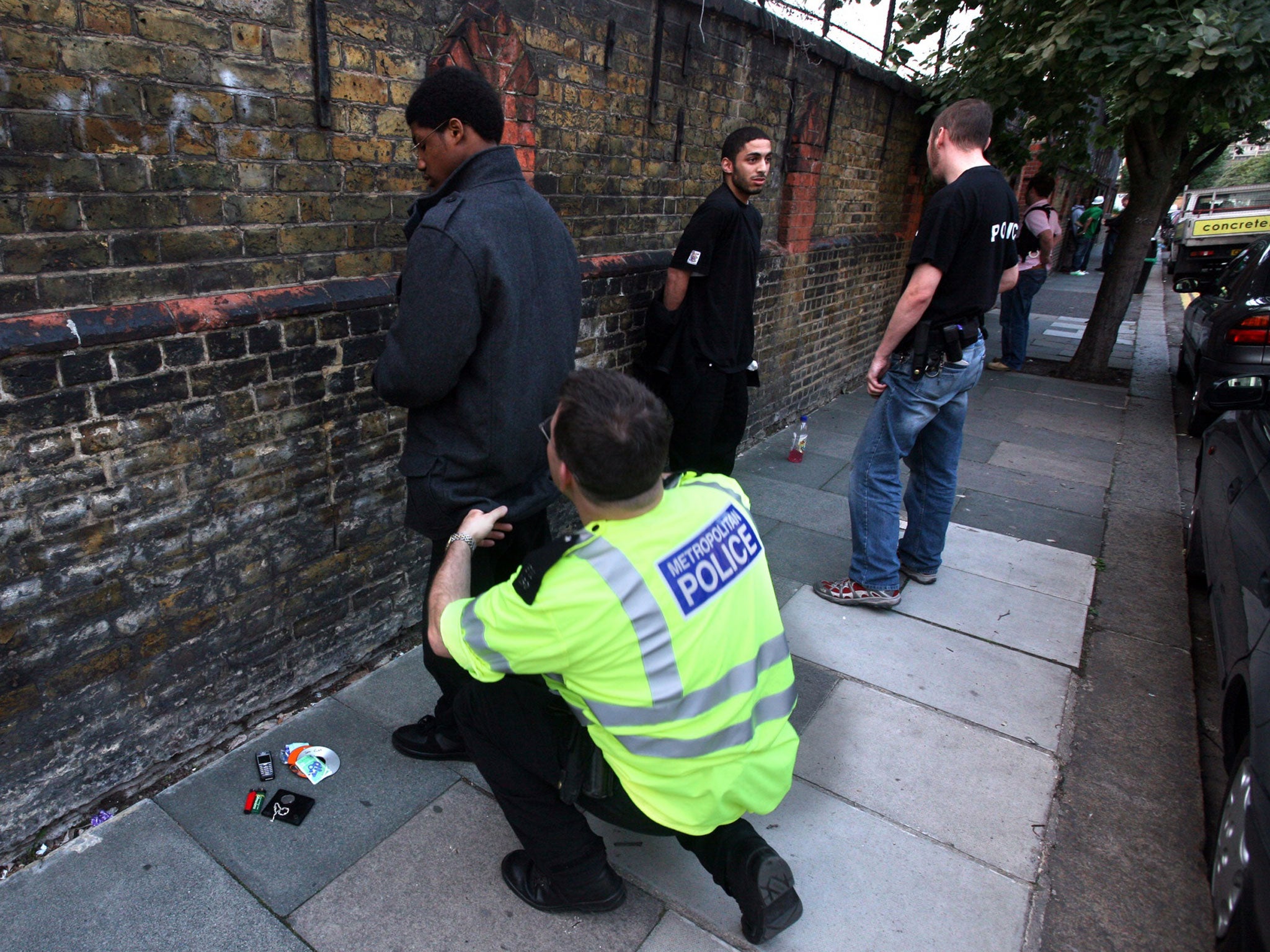How's my searching? Police hit wrong gang targets due to old intelligence

British police forces are using ‘unregulated’ and ‘out-of-date’ databases of suspected gang members to decide who to stop and search, according to new research.
The authors of the study argue that individuals are being too easily placed on such databases, often on the basis of weak evidence.
As a result they say people are being unfairly and repeatedly stopped and searched.
They also claim that names are remaining on the police intelligence records even after a person has cut ties with a gang because of failures to update the information.
Forces in Manchester, Glasgow, London and Birmingham are all understood to have established their own gang member databases.
An academic who was given access to one used by Greater Manchester Police said 90 per cent of those on it were young black men.
Last night Dr Juan Jose Medina, the criminologist behind the stop and search study, called for the Government to regulate the use of the databases and ensure they are subject to legal and quality control.
His calls come just days after Home Secretary Theresa May launched a consultation into the controversial stop and search (SUS) powers after warning on Tuesday that there use may be harming community relations.
Dr Medina’s research states that the Home Office’s own data has revealed that the odds of gang members being targeted by police using SUS laws are two times higher than the rest of the population.
The statistics further show that just being associated with a ‘delinquent friend’ triples the odds of being stopped and searched, the paper says.
Dr Medina, a senior lecturer at Manchester University, said: “What we know is it’s relatively easy to make it onto these databases. Different police forces can use different criteria of what a gang member is and the evidence you need to get into these databases isn’t incredibly strong.
“For example if police see you hanging out with a person a few times they assign you to be in the gang.
“And these databases are not kept up-to-date. We’re calling for a more open debate for the use of databases so it is clear what criteria you are including in them and that they are updated regularly so people don’t stay on them forever.”
But it has emerged that the Met Police is already taking steps to counter criticisms and increase public confidence in the use of SUS powers.
Last week the force launched a trial in Camden, north London, where suspects who have been stopped and searched are then invited to take part in a ‘satisfaction survey’.
Officers involved in the pilot give the person they have stopped a leaflet which asks them how they rated their experience and directs them to a longer questionnaire.
An internal police memo said: “Feedback is important so that the Met can ‘stand up for itself’ with solid data.